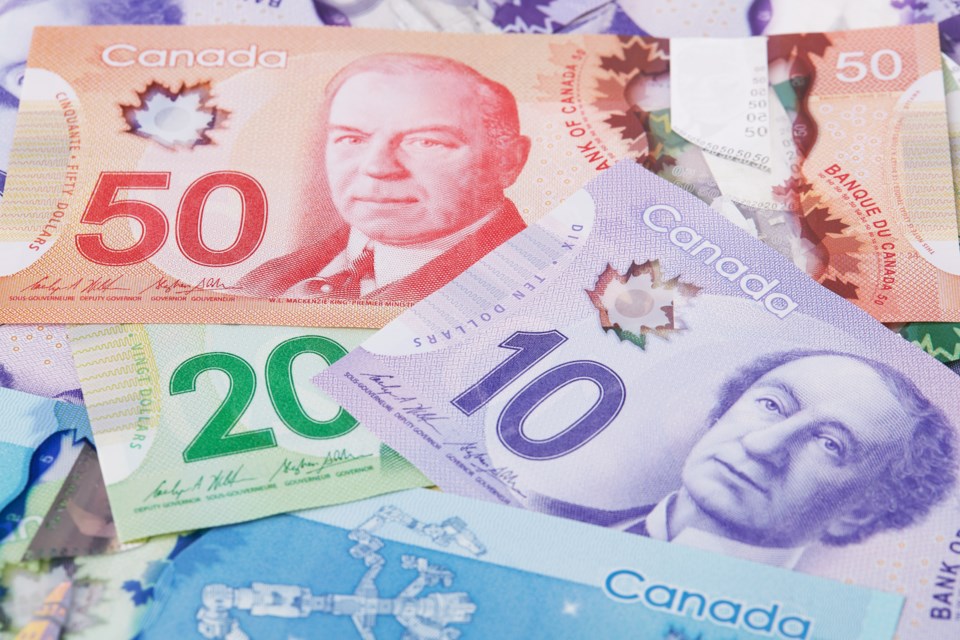City administration is pitching the 2024 budget as a “status quo” document that provides the same programs and services as this year, even though operating revenues and expenses are still expected to increase.
Next year’s budget proposes total spending of $158,992,450, as compared to $139,661,592 this year — an almost 14-per-cent increase, the report shows. Spending differences between this year and next year show:
- General operating budget (including transit): $57,931,465 / $61,564,980
- General capital budget spending: $13,700,930 / $20,627,989
- Land development capital spending: $827,536 / $1,675,000
- Equipment reserve budget spending: $5,449,646 / $1,135,235
- Utility operating budget: $30,666,447 / $31,462,053
- Utility capital budget request for new spending: $31,085,568 / $42,457,193
The budget document shows that revenues for the operating budget — used for day-to-day activities — are expected to increase by $1,429,641 — or 2.46 per cent — to $59,428,318, while expenses are expected to increase by $2,884,103 — or 4.97 per cent — to $60,882,780.
The hike in expenses is due to negotiated collective agreement increases, inflation on non-salary budget areas, funding for the police service and a higher subsidy for the Events Centre, the report continued. Inflation is expected to be three per cent, which will affect all city budgets.
The general capital budget — which includes $16,196,678 in carry-forward funding — proposes:
- $18,205,550 for transportation
- $6,579,776 for parks and recreation
- $3,326,618 for other services
- $80,000 for the police service
- $1,927,839 Moose Jaw Events Centre
- $2,293,000 for storm sewers
- $4,411,884 for land development
The equipment reserve budget — which includes $4,894,272 in carry-forward funding — proposes:
- $287,282 for parks and recreation equipment
- $341,647 for Information Technology equipment
- $506,306 for all other departments and third-party groups
The utility operating budget consists of the waterworks and wastewater utility and the solid waste utility.
The waterworks and wastewater utility proposes spending $14,928,186 in the waterworks division and $10,454,441 in the wastewater division; city administration is asking council to approve four-per-cent increases in each division.
The solid waste utility proposes spending $6,079,426, which includes a proposed increase to garbage and recycling collection fees of $4.68 annually and an increase in landfill tipping fees.
The utility capital budget — which includes $24,579,710 in carry-forward money — proposes:
- $19,533,193 in the waterworks division
- $40,698,000 in the wastewater division
- $6,805,701 in the solid waste utility
Municipal taxation is the largest revenue source of the operating budget at 57.4 per cent, with city hall expecting to collect $34,100,000 next year compared to $33,561,707 this year — a 1.60-per-cent increase, the report said.
Meanwhile, the document noted that commercial property appeal losses were not as bad this year as in the past since successful appeals led to a loss of municipal tax revenue of $182,528. In comparison, past years saw losses of $400,000.
“As you can see, it (this year’s loss) is a much more reasonable (and manageable) number than we’ve had in the past,” finance director Brian Acker said during the Dec. 6 budget meeting, noting it doesn’t cause city administration any concern.
City administration is continuing to shrink the tax gap between residential and commercial properties as council requested in 2017, Acker continued. While the final mill rate increase will determine next year’s number, the goal is for it to reach one; this year, it is 1.83.
Of the revenue line items, Acker highlighted the provincial revenue-sharing category, which the city expects to increase by $988,000.
“(That category) is a rollercoaster; it’s up, it’s down. It’s up, it’s down,” he said, noting the increase is significant to the bottom line.
While city hall considers the budget to be status quo, it does cost more each year to provide the same program and services, so Moose Jaw is not immune to inflation, Acker added. Therefore, city council will have to either approve or deny new projects.
The next budget meetings are Monday, Dec. 11, Wednesday, Dec. 13 and Monday, Dec. 18.
In response to some providers blocking access to Canadian news on their platforms, our website, MooseJawToday.com will continue to be your source for hyper-local Moose Jaw news. Bookmark MooseJawToday.com and sign up for our free online newsletter to read the latest local developments.




